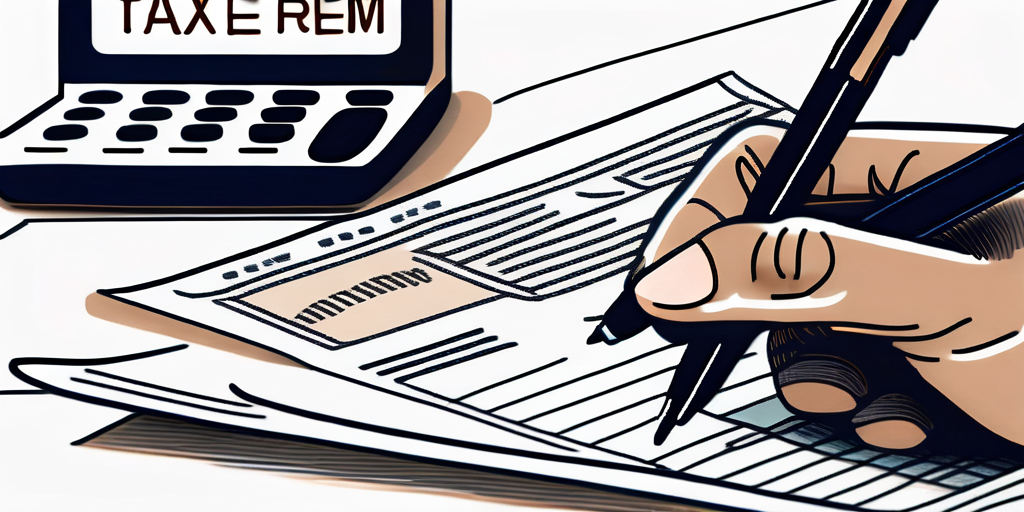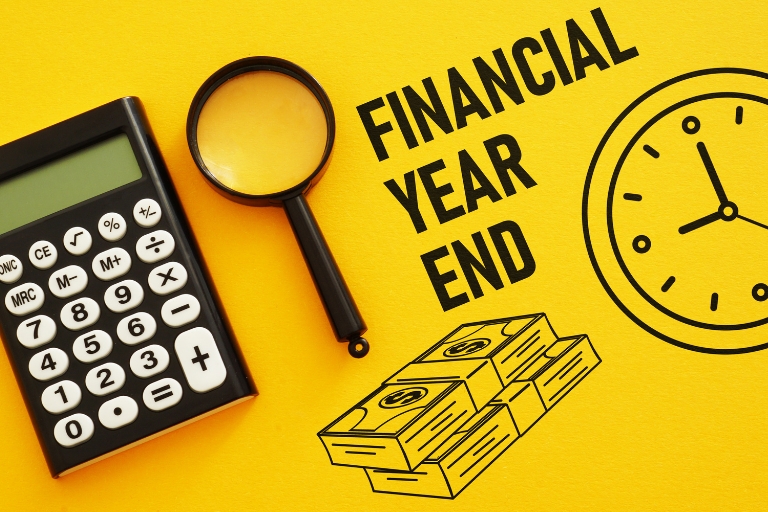Welcome, dear reader, to the thrilling world of tax preparation! Yes, you heard right. Thrilling! You may think we’ve lost our marbles, but stick with us. By the end of this glossary article, you’ll be laughing all the way to the tax office. So, buckle up and prepare for a rollercoaster ride through the exhilarating landscape of year-end tax planning.
Now, before we dive into the deep end, let’s get our definitions straight. Tax preparation, in its simplest form, is the process of preparing and filing income tax returns. But oh, it’s so much more than that! It’s a dance with numbers, a flirtation with forms, and a thrilling game of hide and seek with deductions. So, without further ado, let’s get this tax party started!
Understanding Tax Preparation
Imagine tax preparation as a giant puzzle. Each piece represents a different aspect of your financial life – income, expenses, investments, and so on. The goal is to fit these pieces together in a way that minimizes your tax liability. Sounds simple, right? Well, not so fast! The tax code is a labyrinthine beast, full of twists, turns, and traps for the unwary. But fear not, for we are here to guide you through this financial maze.

Now, you might be thinking, “Why bother with all this? Can’t I just pay someone to do it for me?” Well, sure, you could. But where’s the fun in that? Plus, understanding the basics of tax preparation can save you money and give you greater control over your financial future. So, let’s roll up our sleeves and get down to business!
The Importance of Record Keeping
Record keeping is the unsung hero of tax preparation. It’s like the stagehand in a play – you might not see them, but without them, the whole production would fall apart. Keeping accurate and detailed records of your income and expenses is crucial for a successful tax return. It can help you identify potential deductions, avoid penalties, and provide evidence in case of an audit.
But what records should you keep? Well, that’s a great question! The short answer is: anything related to your income or expenses. This includes pay stubs, bank statements, receipts, invoices, and so on. If in doubt, keep it. It’s better to have it and not need it than to need it and not have it.
Understanding Deductions and Credits
Deductions and credits are the superheroes of the tax world. They swoop in at the last minute to save the day, reducing your tax liability and potentially resulting in a refund. But like all superheroes, they come with their own set of rules and restrictions.
Deductions reduce your taxable income, while credits reduce your tax liability directly. Both can save you money, but they work in different ways. Understanding these differences is key to maximizing your tax savings. So, put on your superhero cape and prepare to dive into the world of deductions and credits!
Year-End Tax Planning Strategies
Year-end tax planning is like the grand finale of a fireworks display. It’s your last chance to make adjustments to your financial situation and potentially reduce your tax liability for the year. But like all grand finales, it requires careful planning and execution.
There are many strategies you can use, from maximizing your deductions to deferring income. The best strategy for you will depend on your individual circumstances. But don’t worry, we’re here to help you navigate this financial fireworks display. So, grab your sparklers and let’s light up the sky with some year-end tax planning strategies!
Maximizing Deductions
Maximizing deductions is like finding hidden treasure. It’s all about digging deep into your financial records and uncovering every possible deduction. This could include everything from business expenses to charitable donations. The more deductions you find, the lower your taxable income will be.
But be careful! Not all expenses are deductible, and some have limits or restrictions. It’s important to understand the rules and keep accurate records. And remember, it’s not about finding the most deductions, it’s about finding the right deductions. So, grab your shovel and start digging!
Deferring Income
Deferring income is like playing a game of hide and seek with your money. The goal is to hide as much of your income as possible from the tax man until the next tax year. This can be done in several ways, such as delaying invoices or making contributions to retirement accounts.
But remember, this is a game, not a free-for-all. There are rules and restrictions to consider, and it’s not always the best strategy for everyone. It’s important to understand your individual circumstances and consult with a tax professional if necessary. So, ready or not, here comes the tax man!
Preparing for the Future
Preparing for the future is like planting a tree. It requires time, patience, and a little bit of foresight. But with the right care and attention, it can grow into something beautiful. The same is true for your financial future. With careful planning and preparation, you can build a strong financial foundation and secure a bright future for yourself and your loved ones.
So, what does this look like in practice? Well, it could involve setting up a retirement account, investing in a college savings plan, or creating a budget. The key is to start early and make consistent, informed decisions. So, grab your shovel and let’s start planting!
Retirement Planning
Retirement planning is like planning a vacation. You need to decide where you want to go, how you’re going to get there, and what you’re going to do when you arrive. But instead of booking flights and hotels, you’re investing in retirement accounts and planning for a future without a regular paycheck.
There are many different retirement accounts to choose from, each with its own set of rules and benefits. Understanding these options is key to making the most of your retirement savings. So, pack your bags and let’s start planning your financial vacation!
College Savings
College savings is like saving for a rainy day. You hope you won’t need it, but it’s good to have just in case. And with the cost of college tuition on the rise, it’s more important than ever to start saving early.
There are several different savings options to choose from, including 529 plans and Coverdell Education Savings Accounts. Each has its own set of benefits and restrictions, so it’s important to do your research and choose the one that’s right for you. So, grab your umbrella and let’s start saving for that rainy day!
Conclusion
Well, there you have it, folks! A whirlwind tour through the wild world of tax preparation and year-end planning. We hope you’ve found this journey as thrilling as we have. Remember, tax preparation isn’t just about filling out forms and crunching numbers. It’s about taking control of your financial future and making informed decisions. So, keep learning, keep laughing, and keep making the most of your money!
And remember, the tax code may be a labyrinthine beast, but you’re not alone in this journey. There are plenty of resources available to help you navigate this financial maze. So, don’t be afraid to ask for help, keep your sense of humor, and always remember to enjoy the ride. After all, life’s a journey, not a destination. Happy tax planning!


